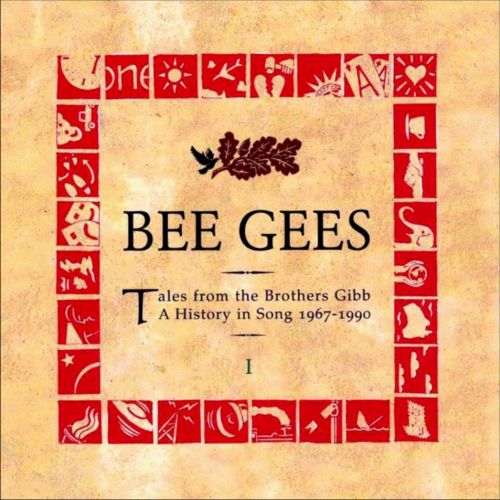

This four-CD set is very good, but it also isn't quite all it could have been, mostly because the makers were hamstrung by the peculiar nature of the Bee Gees' audience. In the United States, their 1967-1977 output, embracing sounds from psychedelic pop to disco, is the biggest-selling part of their catalog, but those hits were already represented on three compilations; in Europe and South America, however, the group still had a huge audience for their then-current work, as of 1990. In order to come up with a release that could be marketed in every corner of the globe, the makers had to reach across 23 years of music, encompassing four distinct stylistic periods (there was apparently never any thought given to licensing any of the group's Australian-era singles) and condense it down to four CDs. The result was a box that spread itself a little too thin to totally please everybody, but it is still a uniquely enjoyable survey of their output, mostly because the songs are so good -- indeed, apart from the Beatles or the Hollies, it's difficult to imagine any other group that could match the quality of the 25 songs represented on just the first CD in this set. Disc one is an "11" on a scale of ten for sheer loveliness, outstripping any other collection of 1967-1969 Bee Gees material; though it was necessary to ignore their best album cuts, what's here is essential listening, covering the trio's first three years' worth of singles and B-sides, from "New York Mining Disaster 1941" (a song that took on serious new resonances after the World Trade Center destruction in September of 2001) to their temporary split in 1969. The hits speak for themselves, but the unanthologized singles and B-sides -- "Jumbo," "Barker of the UFO," "Sir Geoffrey Saved the World," "Sinking Ships," and "The Singer Sang His Song" -- are all very worthwhile. The makers have also reached out to genuinely obscure (and worthwhile) solo cuts by Robin Gibb and Maurice Gibb from the period of the trio's split, and the two-man Bee Gees single "Tomorrow Tomorrow" and its hauntingly beautiful B-side, "Sun in My Morning" (one of the loveliest songs the Bee Gees ever recorded, and by itself justifying about a quarter of the price of the set), as well as the highlights off the Cucumber Castle LP. Disc two is less adventurous musically, though it is pretty and finely produced, and it contains such oddities and rarities as the gorgeous "Morning of My Life (In the Morning)" (from the Melody soundtrack LP) and "Elisa" and "King and Country," a pair of cuts from the lost 1973 album "A Kick in the Head Is Worth Eight in the Pants" that found their way out as B-sides. Disc three covers the trio's mega-platinum disco/soul era, and it's difficult to quibble with the presence of the hits, though one wishes that the producers had included such Main Course outtakes as "Your Love Will Save the World" or even "Was It All in Vain." Disc four is usually thought of as the weak link in this set, starting with material off the Living Eyes album, when the group again found itself on the outside looking in on popularity. The material here was about as solid as what preceded it -- the public simply wasn't listening and radio wasn't playing it as much, but the previously unissued "ESP" demo and cuts like "You Win Again" as well as "Ordinary Lives" and "One" are still first-rate Bee Gees. And the live sides that close the disc, beginning with their then-current German hit "Juliet," reaching back to "To Love Somebody" and "Spicks and Specks," are all good performances. The set is well mastered and nicely put together, and though the booklet is a little skimpy in content by the standards of boxes that have come out since, the recollections by the individual group members about each song make this set a particular delight for fans. Note: As released outside of the United States, Tales From the Brothers Gibb contains three extra songs, Barry Gibb solo tracks from the soundtrack of the movie Hawks.